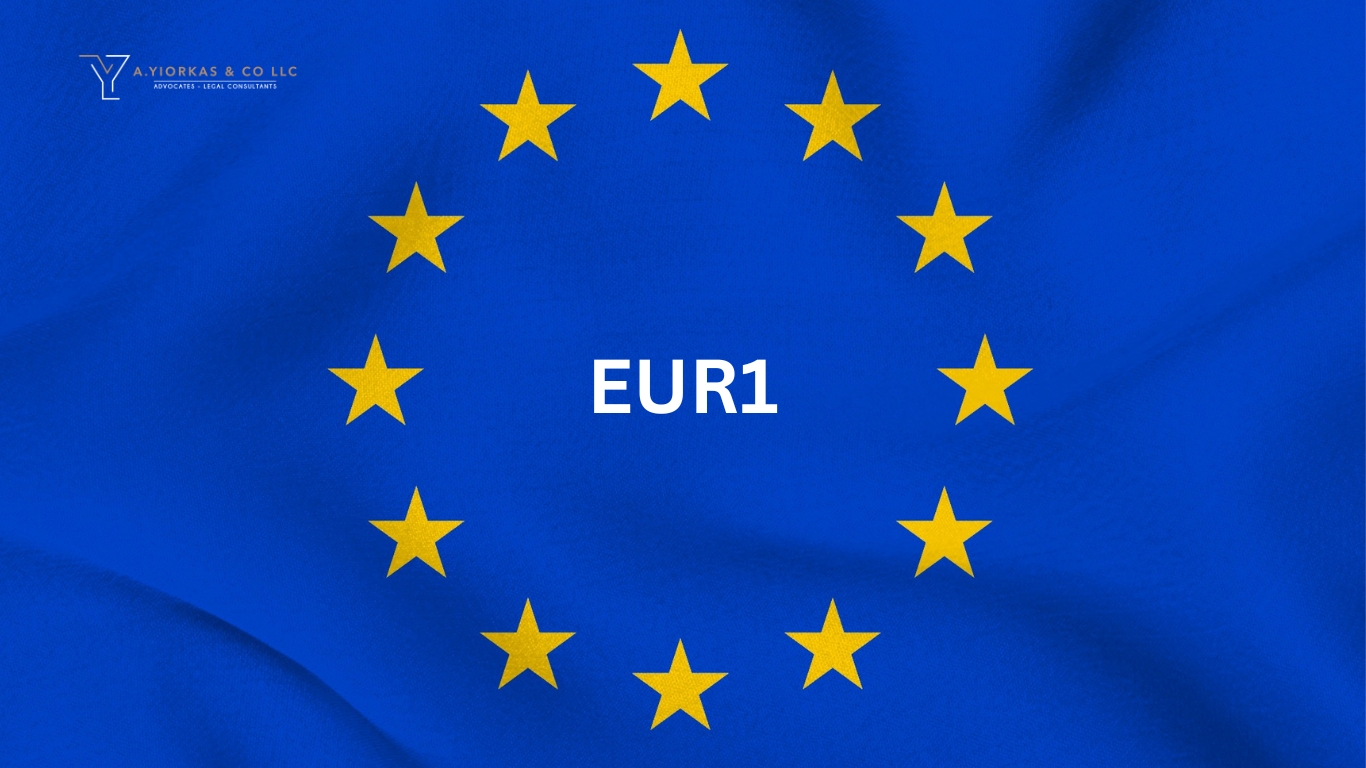EUR1 Certificate: The 5 Criteria to Obtain it and its Fundamental Advantages!

Table of Contents
Introduction:
A EUR1 Certificate, also known as a Movement Certificate EUR1, is a document that is used in international trade to certify that goods being exported from one country to another are eligible for preferential tariff treatment, such as lower tariffs, under the terms of a trade agreement between the two countries. It is proof of the origin of the goods and is required in order to qualify for certain trade preferences.
Criteria:
In order to be eligible for a EUR1 Certificate, the goods being exported must meet certain criteria.
There are a number of ways in which a good can acquire European Union origin. These ways may be common or may vary from agreement to agreement. The possible ways of obtaining European Union origin are the following:
Entirely Manufactured Goods;
Adequate Processing;
Bilateral Accumulation;
Diagonal Stacking;
Full Accumulation.
The above first three modes (entirely manufactured goods, adequate processing, bilateral accumulation) are provided in all agreements, nevertheless, their details may differ.
Application:
In order to obtain a EUR1 Certificate, the exporter must first submit a request to the competent authority in their country. The competent authority is typically the chamber of commerce or a similar organization that is responsible for issuing these certificates. The company must then provide certain information and documentation, including a description of the goods being exported, the country of destination, and the country of origin of the goods.
Once the request has been submitted, the competent authority will review the request to ensure that the goods being exported meet the necessary criteria. If the goods are found to be eligible, the competent authority will issue the EUR1 certificate.
The EUR1 Certificate is typically valid for a period of six months from the date of issuance. During this time, the exporter can use the certificate to claim preferential tariff treatment for the goods being exported.
In order to maintain the validity of the EUR1 Certificate, the exporting company must adhere to certain conditions. These include maintaining accurate records of the goods being exported and providing the necessary documentation to support the origin of the goods. The company must also notify the competent authority of any changes to the information provided in the original application.
APPROVED EXPORTER:
According to Article 1 (19) of the Delegated Regulation (EU) 2015/2446, an exporter is defined as:
a. the individual who transports goods that are to leave the customs territory of the Union, when these goods are contained in the personal luggage of the individual,
b. in other cases, in which point (a) does not apply:
i. the person established within the customs territory of the Union, has the power to decide and has decided that the goods must leave the said customs territory,
ii. where point (i) does not apply, any person established within the customs territory of the Union who is a party to the contract under which the goods are to leave the said customs territory.
Benefits of EUR1 Certificate:
There are several benefits of obtaining a EUR1 Certificate for the exporter. Some of these benefits include:
Reduced tariffs:
By obtaining a EUR1 Certificate, the exporter can claim preferential tariff treatment for the goods being exported. This can result in reduced tariffs, which can make the exported goods more competitive in the international market.
Increased Exports:
By reducing the cost of exporting goods, a EUR1 Certificate can help to increase the competitiveness of the exported goods and boost exports to the importing country.
Simplified Customs Procedures:
A EUR1 Certificate can simplify customs procedures, as it allows the exporter to claim preferential tariff treatment without having to go through the usual process of proving the origin of the goods.
Enhanced Reputation:
By obtaining a EUR1 Certificate, the exporter can demonstrate that they are committed to complying with international trade agreements and that their goods meet the necessary standards. This can enhance the reputation of the exporter in the international market.
Important Notes:
The preferential tariff treatment provided for applies only to products transported directly between the European Union and the importing country. However, products constituting a single shipment may be transported through other territories with, where appropriate, transshipment or temporary storage in that territory, provided that the products remain under the supervision of the customs authorities of the country of transit or storage and that they is no other work to be done there, other than unloading, reloading or any other work aimed at keeping them in good condition.
Failure to comply with the requirements for obtaining and maintaining a EUR1 Certificate can result in the revocation of the certificate. This can have serious consequences for the exporting company, including the loss of trade preferences and the imposition of higher tariffs on their exports.
It is important to note that the EUR1 Certificate is not a guarantee of preferential tariff treatment. The final decision on whether or not to grant preferential tariff treatment rests with the customs authorities in the importing country.
Conclusion:
In conclusion, a EUR1 certificate is a document that is used in international trade to certify that goods being exported are eligible for preferential tariff treatment under the terms of a trade agreement between the exporting and importing countries. Obtaining a EUR1 certificate can provide numerous benefits to the exporter, including reduced tariffs, increased exports, simplified customs procedures, and an enhanced reputation. It is important for exporters to understand the criteria for obtaining a EUR1 certificate and the process for requesting one from the competent authority in their country.
Our office is in the strong position to discuss the effects of the EUR1 Certificate and provide advice initially on whether is applicable, and thereafter to handle the whole process to benefit from such preferential tariff treatment.
